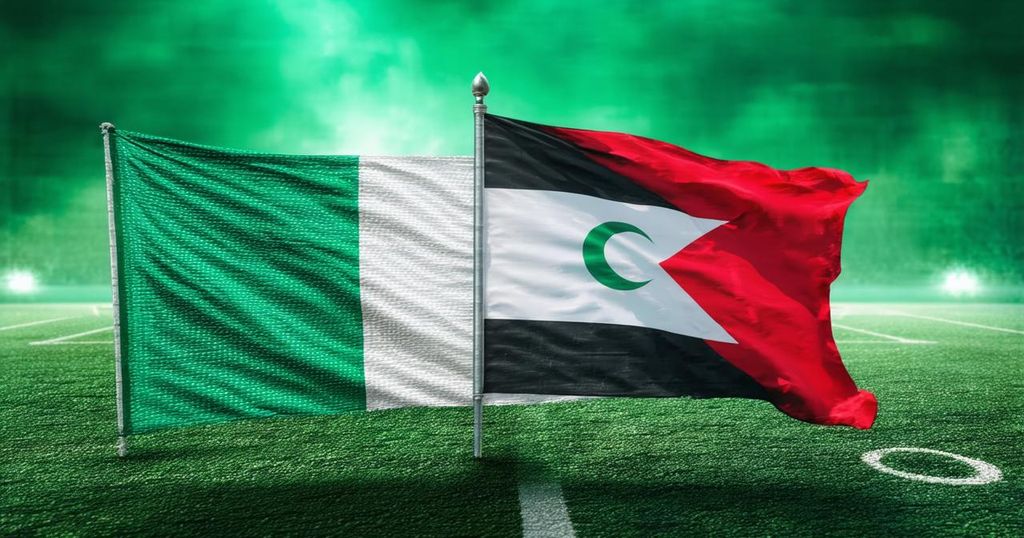Nigeria’s Super Eagles boycotted a qualifying match against Libya due to disputes surrounding their treatment while traveling, leading to a dispute addressed by the Confederation of African Football. The conflict involved flight diversions and inadequate accommodations, with both countries presenting conflicting accounts before the disciplinary committee.
The ongoing dispute between Nigeria and Libya has escalated following Nigeria’s decision to withdraw from a qualifying match for the 2025 African Cup of Nations (AFCON) against Libya’s Mediterranean Knights. This controversy was addressed before the Confederation of African Football’s disciplinary committee on October 20, where both nations presented conflicting accounts regarding the circumstances leading to Nigeria’s boycott. The conflict originated when Libyan authorities redirected the Nigerian Super Eagles’ flight, originally destined for Benghazi, to Al Abraq Airport in Bayda. Consequently, the Nigerian team endured a wait of over 18 hours at the airport without access to food or accommodation. In response, the Nigeria Football Federation filed a protest with the Confederation of African Football, expressing dissatisfaction with the treatment their team received. Although the Libyan Football Federation acknowledged the claims and extended an apology, they categorized the situation as a mere logistical error, suggesting that it might have been a reaction to issues faced by the Mediterranean Knights during their prior visit to Nigeria. The Libyan Football Federation shared images and videos on social media depicting their team stranded at Port Harcourt International Airport, emphasizing similar struggles they experienced, thus drawing parallels between the two nations’ experiences. Reports from sources indicated that the Libyan team was forced to land at Port Harcourt Airport due to the denial of landing rights to their chartered flight at Uyo Airport, causing delays and complications in reaching their accommodations. They reported difficult conditions while traveling through unsafe areas at night. On the Nigerian side, officials refuted claims of mistreatment and attributed the issues to the Libyan Football Federation’s failure to communicate timely about their arrival. Past incidents involving the Nigerian Football Federation include situations where teams arriving for matches faced similar logistical hurdles, as was the case with the South African football team during a previous FIFA World Cup qualifier where they encountered excessive delays and challenging conditions. Such incidents extend back to 2013 when the Kenyan team experienced problems during FIFA qualifiers in Nigeria. In summary, this dispute between Nigeria and Libya highlights ongoing issues with travel logistics and accommodations for international teams competing in Nigeria, reflecting a broader pattern of mishaps experienced by visiting teams in the region.
This article discusses a significant dispute stemming from Nigeria’s withdrawal from a football qualifying match against Libya for the 2025 African Cup of Nations (AFCON). The tension arose from an incident where the Libyan authorities redirected the Super Eagles’ flight, leading to adverse treatment of the Nigerian team during their travel. Both nations delivered conflicting narratives regarding logistical difficulties encountered by their respective teams during their travels for the match, raising questions about the broader issues faced by international teams visiting Nigeria. Historical precedents in similar incidents involving other teams reveal a worrying trend tied to logistical mismanagement.
In conclusion, the escalating controversy between Nigeria and Libya showcases the challenges faced by international football teams due to inadequate logistical arrangements and communication failures. Nigeria’s history of similar incidents further complicates the situation, prompting concerns about the country’s capacity to manage international sporting events effectively. Both nations must address these issues to ensure fair and respectful treatment of all competing teams in future engagements.
Original Source: www.voanews.com







